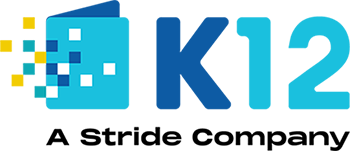x
Search results for 'k12courses.com recommends exam questions and practice tests from certkillers.net for certification students'
Show Filter
Summit Math Plus Yellow (5) (Independent Study)
This research-based course focuses on computational fluency, conceptual understanding, and problem-solving. The engaging course features new graphics, learning tools, and games; adaptive activities that help struggling students master concepts and skills before moving on; and more support for Learning Coaches to guide their students to success. This course for students in Grade 5 investigates whole numbers through practical situations in rounding, exponents and powers, and elementary number theory. Students begin addition and subtraction of integers and apply all of their work with rational numbers to problem-solving experiences. The study of algebra includes work with variables, solving equations and inequalities, using formulas within geometry and measurement, and work within the coordinate system. The study of geometry encompasses properties of lines, angles, two- and three-dimensional figures, and formal constructions and transformations.From: $24.00
Summit Math Plus Red (4) (Independent Study)
This research-based course focuses on computational fluency, conceptual understanding, and problem-solving. The engaging course features new graphics, learning tools, and games; adaptive activities that help struggling students master concepts and skills before moving on; and more support for Learning Coaches to guide their students to success. This course for students in Grade 4 moves into applications and properties of operations. Students work with simple fraction and decimal operations, which are applied in the study of measurement, probability, and data, and mathematical reasoning techniques. Students begin the study of equivalencies between fractions and decimals on the number line and early work with integers. Algebraic thinking is developed as students work with variables, coordinate graphing, and formulas in problems involving perimeter, area, and rate. Geometry is extended into greater classification of shapes and work with lines, angles and rotations.From: $24.00
Summit Language Arts Yellow (5) (Independent Study)
This course provides structured lessons on reading comprehension, critical reading and analysis, composition, vocabulary, grammar, usage, and mechanics. Through emphasis on spelling, students learn relationships between sounds and spellings in words and affixes. Lessons are designed to develop comprehension, hone critical reading skills, build vocabulary, and help students evaluate and apply the ideas they have learned from their reading. Students practice writing as they write a memoir, editorial, research paper, business letter, and more. Students learn about parts of speech, punctuation, and research skills. Students study literature in a variety of genres including fiction, poetry, nonfiction, drama, and novels. Students also learn to work with technology and multimedia through the short and extended projects.From: $24.00
NEED MORE INFO

THANK YOU!
We have received your inquiry and you will start to receive additional information about our school offerings and programs. An enrollment consultant will contact you shortly.

